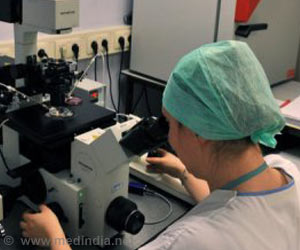Forensic science is a crucial intersection of the law and medicine. This article explores how crimes are solved using forensic science.
Highlights:
According to the College of American Pathologists, forensic pathologists, who are medical doctors with specialized training in forensic medicine, apply medical jurisprudence to determine the cause and manner of death. They conduct autopsies, which involve a thorough examination of the deceased person's body, both externally and internally. During the autopsy, they carefully examine organs, tissues, and fluids, collect samples for analysis, and document any injuries or abnormalities (1✔ ✔Trusted Source- Forensic medicine applications vary, from determining the cause of death and interpreting injuries to analyze toxicology and conducting sexual assault examinations
- Expert witnesses such as doctors and medical researchers and their testimony play a crucial role in presenting medical evidence in court
- Underscores the essential intersection of medicine and law, ensuring a fair and effective pursuit of justice
The use of medical knowledge in the crime investigation
Go to source).
‘The nexus of medicine and law: Understanding how medical jurisprudence bridges the gap to ensure fair and effective criminal investigations. #CauseOfDeath #ForensicPathology #ToxicologyAnalysis #InjuryInterpretation’





Advertisement
Who are Forensic Pathologists?
Based on their findings, forensic pathologists determine the cause of death, which refers to the specific injury or disease that directly led to the person's demise. For example, they may identify fatal injuries, such as gunshot wounds, stab wounds, or blunt force trauma. They also consider natural causes, such as heart attacks, strokes, or infections. In addition to the cause of death, forensic pathologists determine the manner of death, which classifies the circumstances surrounding the death. Common categories include:- Homicide: Death caused by the intentional actions of another person
- Suicide: Death caused by self-inflicted injuries with the intention of ending one's life
- Accidental: Death resulting from an unintentional event, such as a car accident or fall
- Natural: Death resulting from natural causes, often due to diseases or medical conditions
- Undetermined: When there is insufficient evidence to conclusively determine the cause or manner of death
Advertisement
Sexual Assault Examinations
Medical jurisprudence plays a vital role in cases of sexual assault, where forensic medical professionals gather evidence and document injuries. The examination is conducted by a forensic physician or a Sexual Assault Nurse Examiner (SANE) who has specialized training in this area.The examination typically involves a comprehensive assessment of the victim's physical and psychological well-being. The medical professional collects forensic evidence, such as swabs from the victim's body, clothing, or personal belongings, to identify DNA evidence that may be linked to the perpetrator. They also document any injuries or trauma, which can corroborate the victim's account and serve as evidence in court.
The medical report generated from the examination is an essential piece of evidence in sexual assault cases. It provides an objective documentation of injuries, the presence of foreign DNA, and other pertinent medical findings that can support the victim's testimony and contribute to the investigation and prosecution of the crime.
Advertisement
Injury Interpretation
Medical jurisprudence assists in interpreting injuries observed in victims, allowing forensic experts to determine their nature and potential causes. By applying medical knowledge, forensic pathologists and other medical experts can distinguish between accidental, self-inflicted, and intentionally inflicted injuries.They carefully examine wounds, bruises, fractures, and other forms of trauma to determine their characteristics and likely mechanisms of causation. For example, they can identify patterns of injuries that may indicate a specific type of weapon or modus operandi. The timing of injuries can also provide valuable information regarding the sequence of events in a crime.
By analyzing the injuries and their context, medical experts can provide insights to investigators, helping them understand the circumstances surrounding the crime and assisting in identifying potential suspects or establishing the credibility of witness statements.
Toxicology and Drug Analysis
Medical jurisprudence applies toxicology principles to analyze substances present in the body, such as drugs, alcohol, or poisons. Forensic toxicologists play a crucial role in determining these substances' presence, concentration, and potential effects.They collect biological samples, such as blood, urine, or hair, and employ various laboratory techniques to identify and quantify drugs or toxins. This information is valuable in cases involving drug-related offenses, such as possession, distribution, or impaired driving.
Toxicology analysis also contributes to investigations involving poisoning or suspicious deaths. By examining body fluids and tissues, toxicologists can identify the presence of substances that may have caused or contributed to the victim's injury or death.
The results of toxicology analyses help establish whether substances played a role in the crime, determine impairment levels, provide evidence for drug-related charges, or shed light on potential motives for criminal actions.
Child Abuse Investigations
Medical jurisprudence plays a critical role in cases of suspected child abuse. Forensic pediatricians, who specialize in the medical care of children and have additional training in forensic medicine, are involved in the assessment and documentation of injuries and abuse.These experts conduct comprehensive examinations of children who may have been subjected to physical, sexual, or emotional abuse. They carefully document any signs of trauma, including bruises, fractures, or patterned injuries. They also consider the child's medical history and conduct interviews to elicit pertinent information.
Forensic pediatricians play a crucial role in differentiating accidental injuries from non-accidental injuries. They consider the age-appropriateness of the injuries, the child's developmental stage, and other factors to determine if abuse has occurred. Their expertise helps investigators understand the nature and severity of the abuse, gather evidence, and take appropriate actions to protect the child's welfare.
Expert Witness Testimony
Medical jurisprudence experts frequently provide expert witness testimony in court proceedings. Their role is to present their medical knowledge and opinions to help the court and the jury understand complex medical concepts and evidence.Expert witnesses may explain the significance of injuries, discuss the cause and manner of death, interpret toxicology results, or provide insights into the physical and psychological impact of crimes on victims. They are expected to be objective, impartial, and provide opinions based on their expertise and the available evidence.
Their testimony is particularly important in cases where medical evidence is a key factor in establishing guilt or innocence. Expert witnesses help bridge the gap between medical science and the legal system, assisting the court in making informed decisions based on accurate medical information.
In conclusion, medical jurisprudence is an essential component of criminal investigations, providing valuable medical expertise and analysis to establish facts, determine causes of injuries or death, and aid in the pursuit of justice. The application of medical knowledge in forensic settings enhances the understanding of crimes, supports evidence collection and interpretation, and helps ensure fair and effective legal proceedings.
Reference:
- The use of medical knowledge in the crime investigation - (https://pubmed.ncbi.nlm.nih.gov/30796872/)
Source-Medindia










